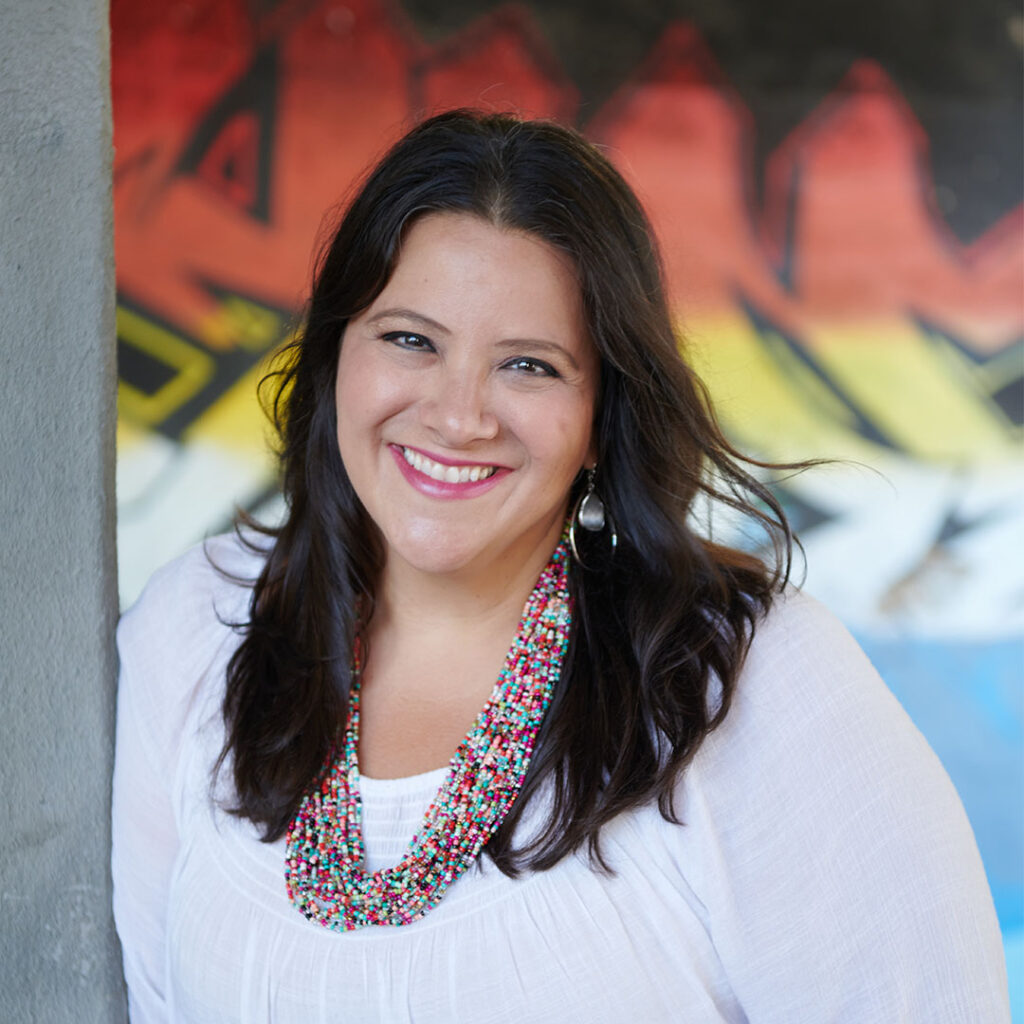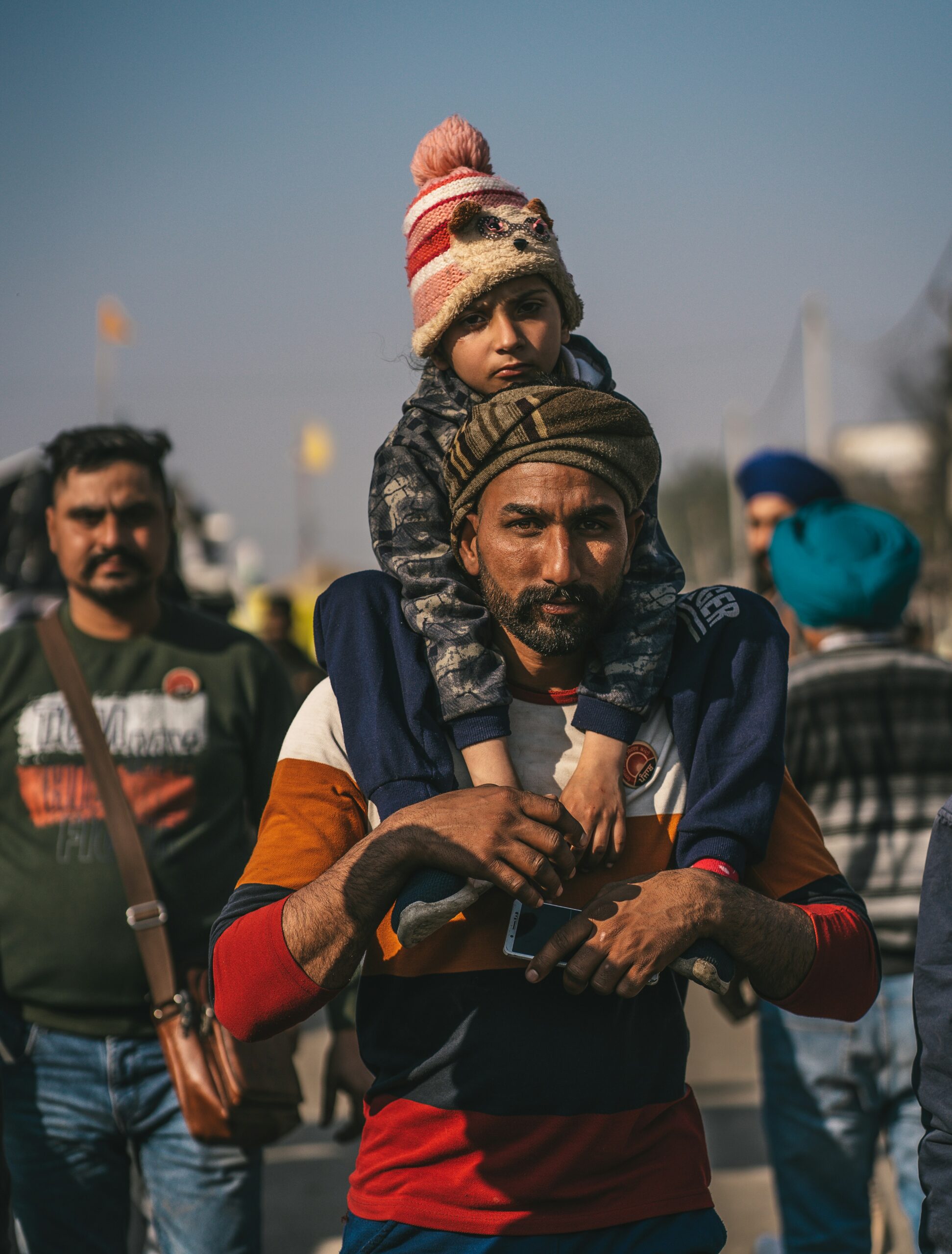“No Longer Strangers: Transforming Evangelism with Immigrant Communities,” edited by Eugene Cho, brings together diverse voices to lay out a vision for a healthier evangelism, one that honors the most vulnerable, and in doing so reveals the true power of the gospel. This is an excerpt from the chapter “Beyond Welcoming” by Chasing Justice director, Sandra Maria Van Opstal. Here she reflects on Paul’s reminder in Ephesians 2:19:
“So then you are no longer strangers and aliens, but you are fellow citizens with the saints and members of the household of God, built on the foundation of the apostles and prophets, Christ Jesus himself being the cornerstone, in whom the whole structure, being joined together, grows into a holy temple in the Lord.”
In the first part of this two-part series, Sandra calls us to embody the power of the gospel: solidarity.
Paul reminds the Ephesians that they were once aliens and strangers who had no hope.
This word choice is not a mistake; he’s reminding them that they were once outcast and considered “less than” by God’s chosen people, in much the same way immigrants and refugees are treated in our country (especially in this current atmosphere).
They are told they are aliens—dangerous intruders who can’t stand on their own feet. Beyond anti-immigrant rhetoric, our nation’s policies and processes remind immigrants and refugees that they are barely human.
This includes all groups that fall under this title: those who are undocumented, those who seek asylum, and even those who are here legally but require some financial assistance due to family hardship.
Imagine feeling like everything about you is unacceptable, whether you are poor, educated professionals, or just children. But now there’s hope! Those who “once were far off have been brought near by the blood of Christ,” and he “has made both groups into one and has broken down the dividing wall, that is, the hostility between us” (vv. 13b, 14b).
In other words, they are to stand with each other, to view each other as equals, as family in the body of Christ.
Solidarity Is the Power of the Gospel
This is also a step in our journey toward loving the immigrants and refugees who come to our country, city, and community, toward understanding that every person bears God’s image and has equal access to the kingdom. The gospel is available to all, transforms all, and invites all to equal participation in God’s family. This countercultural solidarity was the power of the gospel in Paul’s time, and still is today.
Solidarity is not sharing a building. I could tell you countless stories of white evangelical communities who have sought to be in solidarity with immigrant communities. It usually plays out one of two ways. The first is the “client” relationship, which is based in services and help to a financially under resourced community that are transactional. This relationship of compassion creates a distinctive power dynamic where there is a benevolent “giver” and an indebted “receiver.” The second is the “tenant” relationship, which is based in shared space. The immigrant community is renting or using space in a building. This relationship does not usually result in connectedness because the immigrant community does not feel obliged to participate in activities with their landlords.
Immigrants, particularly the most vulnerable, are looking for people who will stand with them—not for them. They are inviting us to come and stand alongside them.
Imagine a third way where the focus is not on delivering or sharing assets but on relating as neighbors in proximity to one another. Rejoicing when one rejoices and suffering when one suffers (Rom. 12:15). I can almost taste the gluten and butter, and look forward to dropping them off.
Communities that neighbor well become a fragrant offering; they draw people to authentic relationships with the community and with Jesus. We become the doors that people knock on because they smell us down the street.
Embodied Love Welcomes You Into Solidarity
Mari and Diego came to the door because they had heard there were showers in the building. They had been sleeping in the streets with their children because they did not feel safe accessing shelter/housing due to a lack of privacy for their girls. They came into the church to shower and found brothers and sisters who would listen, learn, and lean in to their story. They found a family that would offer hospitality by welcoming them in and embody solidarity by standing with them in practical ways. They not only had their physical needs met, they found a community to which they could belong.
Carlos and Sara rang the buzzer at our church looking for someone to help them with their marriage. They were not congregants, and they were not clients of the community center. They were simply people who smelled the fragrance of a community that stood in solidarity with people by being present with them in tangible ways.
They wanted to meet face-to-face with someone who could help them be on a road to recovery in their marriage. In all these cases the first contact with the church communities was not spiritual curiosity but emotional or physical needs. And these churches did not turn them away or attempt to tell them what they needed; they leaned in. They embodied love beyond hospitality, which welcomes you into solidarity, which is the act of being with people in all their joy and needs.
How To Stand in Solidarity
So, why is solidarity important? Standing in solidarity in the form of relationship, relief, and advocacy witnesses to the gospel.
If nonimmigrant churches and immigrant churches work together to address the suffering of immigrants and the broken aspects of our immigration system that separates children from families, this becomes a witness to all who see the relationship of solidarity.
Witness the Christian leaders in the migrant caravan of over eight thousand Central Americans, who are working with Mexican pastors and Latinx churches in Southern California through the Matthew 25 ministry. They’re doing so in partnership with white nonimmigrant churches who historically have not done anything to impact our immigration policies through bipartisan reform but are now beginning to enter this process.
This is a reciprocal partnership of four different entities standing together in the name of Jesus and standing for the importance of the family unit.
Central Americans, Mexicans, Latinx, and nonimmigrant white communities working together to model that the power of the gospel is indeed potent. This entire group is becoming a powerful witness of Christ’s love. To truly enter this stage of solidarity in our relationships, we as the church need to be engaging our brothers and sisters with questions:
• What issues most impact you?
• What do you need?
• How can we stand with you?
• What can we celebrate with you?
These are questions we should be asking consistently, both as a church community and as individuals. It is the privilege of any majority culture to assume that we know or understand the needs of other cultures and the issues that most impact them, and that we are the ones best equipped to address those issues.
But to make this assumption misses the point; we cannot truly stand in solidarity with this perspective. We must move ourselves from a position of power and privilege to a place where we are standing next to a stranger who is becoming a friend. To speak the truth of God’s character into the lives of displaced people, we must earn their respect and trust from a position of learning and humility. True solidarity grows out of real empathy for what another individual or group is experiencing, and how they are impacted by systemic issues that are deeply embedded in our national psyche.
To grow this empathy, we need to be “doing life with” immigrants, experiencing what they experience, sharing meals, attending immigration appointments with a family,advocating for resources, and otherwise communicating that “you matter to us.”
Working toward solidarity helps to minimize the power dynamic that has been too often prevalent in our approach to displaced communities, which can be damaging to the very people we’re trying to help; it says, “we need you as part of our community,” “please help us understand your struggles, your challenges, and all the things you have to offer.”
However, even solidarity allows we who are citizens to retain power, because we perceive that they need us but we do not need them. We are showing a desire to understand others’ perspective and needs but can miss important elements of God’s call to us to live in reciprocity as a global church.
There’s a vital next step in the process that moves us more fully into connectedness.
To read more, purchase the book here or check in next week for part two of this series.








